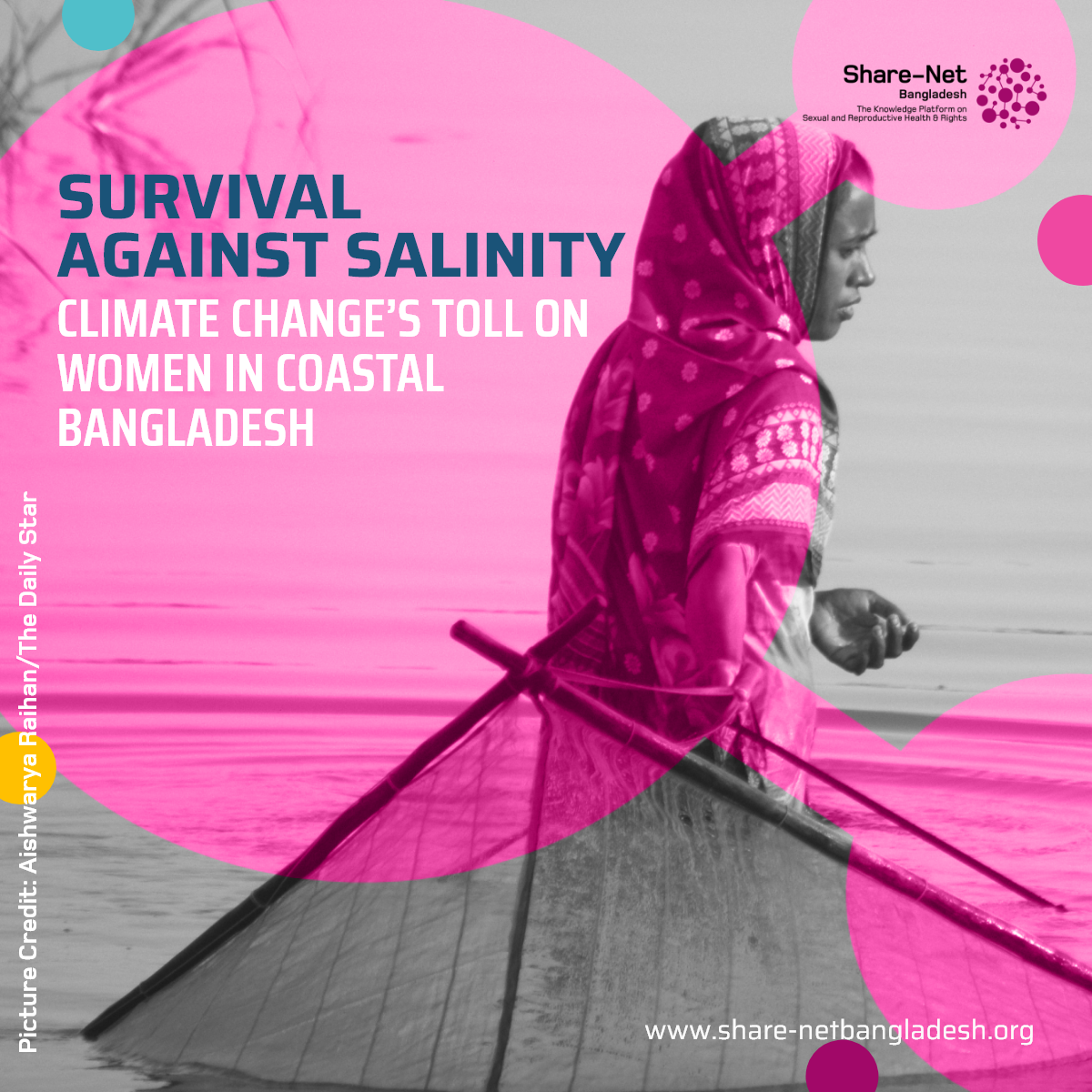Survival Against Salinity: Climate Change’s Toll on Women in Coastal Bangladesh
“Every sip of water reminds us of the hardship we endure,” shares Rahima, a mother of two from coastal Bangladesh, where saltwater intrusion is a growing health crisis. Rising sea levels, driven by climate change, have made freshwater scarce, forcing millions to rely on saline water. The health consequences for women in particular are profound, with sexual and reproductive health and rights (SRHR) severely impacted.
A Crisis Amplified by Climate Change
According to research, nearly 33% of Bangladesh’s coastal population suffers from hypertension linked to excessive salt intake. Women, often the primary water gatherers, bear the brunt of this crisis. Pregnant women face higher risks, including preeclampsia, miscarriage, and stillbirth, as elevated salt levels exacerbate complications. With poor access to maternal healthcare, the long-term impacts on sexual and reproductive health are alarming.
Dr. Nusrat Jahan, a public health expert, explains, “Saltwater intrusion isn’t just an environmental issue; it’s a direct threat to women’s health and well-being, particularly in their reproductive years.”
Impact on Sexual and Reproductive Health
The lack of clean drinking water has created a cycle of vulnerability for women. Salt-contaminated water disrupts menstrual cycles, increases urinary tract infections, and heightens stress. Pregnant women frequently experience complications, with healthcare systems in coastal regions unable to cope with the growing demand for specialized care.
Additionally, women often spend hours collecting freshwater from distant sources, risking physical exhaustion and exposure to violence. This added burden limits their access to education, economic opportunities, and reproductive rights, exacerbating gender inequalities.
SRHR Challenges in Coastal Regions
The absence of adequate healthcare facilities in saline-affected regions further marginalizes women. Access to contraception, prenatal care, and sexual health services is severely limited. Women’s voices are often excluded from discussions on climate adaptation, leaving them vulnerable to systemic neglect.
“Women’s health is not a priority in many climate policies,” says Dr. Jahan. “We need urgent action to integrate SRHR into climate resilience strategies.”
Toward Sustainable Solutions
Efforts to mitigate saltwater intrusion are underway, including desalination plants and rainwater harvesting. However, these solutions remain insufficient given the scale of the crisis. Experts advocate for community-based initiatives that involve women in decision-making processes and promote awareness of the links between climate change and SRHR.
Investments in healthcare infrastructure, especially maternal and reproductive health services, are critical. Policymakers must prioritize education campaigns on the risks of saline water and implement gender-sensitive climate adaptation policies to empower women.
A Call to Action
Saltwater intrusion in coastal Bangladesh is more than an environmental concern—it’s a silent killer threatening women’s health and their fundamental rights. Addressing this crisis requires a holistic approach that acknowledges the intersection of climate change and SRHR. As Rahima puts it, “We need water that gives life, not takes it away.”
To ensure a healthier future, the international community must act now to protect vulnerable populations and uphold women’s rights in the face of climate adversity.
Source: Global Health Now
Source Contributor & Picture Credit: Rafiqul Islam Montu


